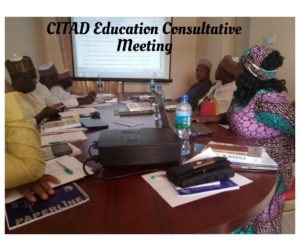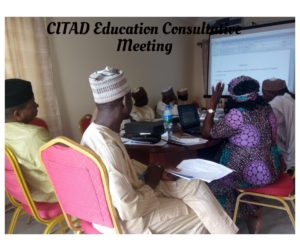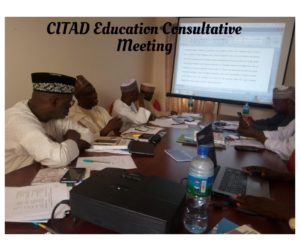Why closure of Kebbi mining sites could cause violent crisis

Centre for Information Technology and Development (CITAD) has expressed concern over the possibility of violent crisis due to the ban on mining activities in Kebbi state by the Nigeria Police Force (NPF).
Addressing a news conference in Kano on Tuesday, Executive Director of CITAD, Dr. Yunusa Zakari Ya’u explained that the total closure of mining sites in the state deprived means of livelihood to tens of thousands of miners.
He added that a research conducted by CITAD shows that the 24 mining sites in the state provides livelihood to at least 156,000 residents, apart from others who also earn from the trade such as transporters, food vendors and traders.
“We studied three mining sites namely Mararrabar Yauri, Makeri both in Ngaski local government and Tungan Zakara in Shamga local government of the state. In these three sites, there are about 20,000 people making a living directly on mining. These are just three sites. If we take a crude estimate that a site has on average 6,500 people, and that each of the local governments where mining takes place has on average two sites, this will mean looking at 24 mining sites in the state, giving employment to about 156,000 people,†he said.
“This means that a substantial number of people of the state are employed in mining and earn their means of livelihood through it. It can in fact be said that mining is the single biggest employer of labour in the state,†he added.
Dr. Ya’u noted that it was wrong for the Inspector-General of Police (IGP), Mohammed Adamu to unilaterally ban all mining activities in Kebbi state without consultation with stakeholders.
“Since the ban of mining in Kebbi state, at least 17 miners have been detained and are facing charge of illegal mining before a Kebbi court. by a stroke of the pen and with no consultation with stakeholders, no thought about alternative means of livelihood for those affected and without any iota of justification, the police deprived these thousands of people their means of livelihood and make them unemployed overnight,†he said.
According to him, communities in Kebbi state have already begun to witness a rise in petty theft, which he said could soon spiral into armed robbery and banditry because people are being pushed into poverty and deprivation.
“This has serious security implication. Illegal mining is said to be a contributing factor to the conflict in Zamfara state. If this is not quickly addressed, the possibility of illegal mining turning into violent confrontation especially between illegal miners and the police and security agencies is high.
“Comparing the dynamics in Zamfara state and the closure of the mines in Kebbi state, it is clear that criminality and violence are not due to the nature of mining but by the way in which government manufacture illegal mining. There are two ways in which illegal mining is produced: The first is when conditions for registration for artisanal miners are made difficult to access and acquire licenses. The second is when government closes mines and make mining activities illegal without consultation and not provide for alternative means of livelihood for those dependent on mining…then use police to repress any effort by miners to disregard arbitrary decision…,†he said.
Dr. Ya’u also observed that while other communities in the state like Mararrabar Yauri and and Makerin could fall back on farming activities as an alternative, there is no such alternative in another community like Tungan Zakara.
“As it is now, without any alternative means of livelihood, when miners out of desperation in Kebbi began to ignore the ban order, they will be met with police violence. This has already happened when the police razed to the ground all shelters/houses, stores, shops, facilities and equipment of miners in Tungan Zakara,†he said.
The CITAD boss therefore called on the federal government to immediately lift the ban on mining activities in Kebbi state in order to restore employment to the mining communities in the state.
“Police are not responsible for issuing or revoking mining licenses in the state. This is the duty of the ministry of mines and steel. We call on government to commit to implementation of the provisions of the Mining Act of 2017 as well as the Minerals and Metals Policy of the same year,†he said.
He further recommended among others the following steps that should be taken to improve mining activities in Nigeria:
- The government should order the immediate re-opening of the mines in Kebbi and that no such closure should be done in future without consultation with miners and plan to provide an alternative means of livelihood to them.
- Clarify within policy instruments the terms artisanal mining and illegal mining, which are often used interchangeably even by researchers.
- Establishing less cumbersome processes and procedures for licensing artisanal miners including ceding this to state level agency such as mineral resources and environmental committee so as to bring the process closer to the miner.
- There is need for regular and comprehensive assessment of quality of environment and water sources of mining communities to ensure early detection of possible contamination so as to take measures to prevent disaster.





